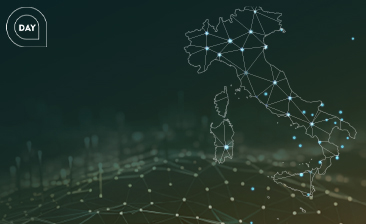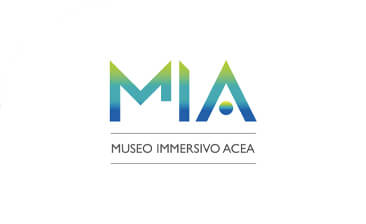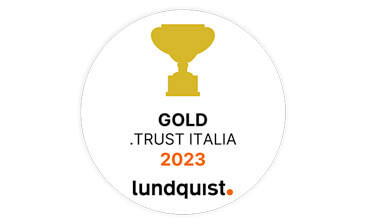In Acea operates a system for receiving and managing reports (called “Whistleblowing”), which can be activated by both employees and external parties, relating to any non-compliance with the law, internal rules and the Code of Ethics and the Human Rights Policy, as well as issues related to the Internal Control System, Corporate Information, the Company's Administrative Liability (Legislative Decree n. 231/01), fraud and conflicts of interest. This procedure ensures the highest degree of confidentiality and privacy in the processing of communications received, to protect the reporting person, the reported person and the persons involved.
The scope of alleged violation reports that can be submitted through the reporting system adopted by Acea and the Group companies is wider than that set forth by Legislative Decree 24 of 10 March 2023 (Implementation of Directive (EU) 2019/1937 of the European Parliament and of the Council, dated 23 October 2019, on the protection of persons who report breaches of Union law and laying down provisions concerning the protection of persons reporting breaches of national regulations) being extended, apart from the violations referred to in the said decree, also to alleged violations of the Code of Ethics, the Human Rights Policy and the body of internal regulations adopted by the various Companies.
In accordance with the provisions set forth by Legislative Decree 24/2023, through the system adopted, it is possible to report behaviour, acts or omissions that harm the public interest or the integrity of Acea and the Group’s subsidiaries, comprising:
Reporting channels available to the whistleblower:
At the time of reporting, and with particular reference to reports of violations as per Legislative Decree 24/2023, whatever the channel or method, the reporting person or complainant must have reasonable and well-founded cause to believe that the information on violations reported, publicly disclosed or denounced is true and comes within the scope of the legislation.
In order to enable the appropriate analysis and in-depth study to be carried out by the Responsible Parties, it is important that the report is timely in relation to the alleged violations communicated.
The report must be made using the channels provided (internal, external and public disclosure) according to the criteria indicated in the following paragraphs.
As a matter of priority, whistleblowers are encouraged to use the internal channel adopted by Acea and the Group companies and, only when certain conditions, explicitly set out below, are met, may they make an external report or public disclosure.
Whistleblowers are primarily required to report any violations or non-compliance with the Code of Ethics and the Human Rights Policy, internal legislation, the law, comprising the violations referred to in Legislative Decree 24/2023, including those relevant pursuant to Legislative Decree 231/01 and violations of organisation and management models, of which they are aware, using the IT platform Comunica Whistleblowing, which guarantees the security and protection of data and the confidentiality of information, by way of an advanced communication and database encryption system, in line with the provisions set forth by reference legislation.
This channel, which guarantees the confidentiality of the whistleblower’s identity, the secure storage of the documents transmitted and uploaded and the confidential handling of the analysis and management processes, ensures the protections envisaged by Legislative Decree 24/2023 and is therefore considered preferential compared to any other channel that may be used.
Through the Comunica Whistleblowing platform it is possible to make reports in writing, electronically and orally, through a voice messaging system, or request a direct meeting with the persons in charge of managing the report.
Once the report has been entered to the platform or the direct meeting has been requested, a unique identification code will be displayed that must be used to "dialogue" with the parties responsible for managing the report in a depersonalised manner and to remain constantly informed regarding the processing status of the report sent.
It is therefore necessary to correctly take note of the unique identification code of the report and keep it with care, because, in case of loss, the same can not be recovered or duplicated in any way and therefore will be required to make a new report.
Reporting parties interested in submitting a report through methods and channels other than the IT platform adopted by Acea and the Group’s subsidiaries, with the intention of keeping their identity confidential and benefiting from the protections provided in the event of retaliation suffered as a consequence of the report, must clearly indicate in the subject of the report or on the envelope that it is a confidential whistleblowing report. Otherwise, the report will be treated as an ordinary report.
Reports that are unrelated to possible non-compliance with laws, internal rules, Code of Ethics and Human Rights Policy will not be given any consideration.
Go to the Comunica Whistleblowing platform
Reports concerning alleged violations of the Code of Ethics and the Human Rights Policy, the Internal Control and Risk Management System (ICRMS) and Legislative Decree no.24/2023 on the part of Acea and the Group’s subsidiaries are sent to the Ethics Officer, an independent collegial body responsible for managing the same, as internal party for Acea SpA and external party for the Group’s individual Subsidiaries.
The Ethics Officer, appointed by decision or resolution of the company’s administrative body, comprises the acting Chairpersons/Heads of the following Acea SpA Bodies/Committees and organisational structures:
Find out more about the Ethics Officer's other responsibilities
Reports concerning relevant unlawful behaviours for the purposes of Legislative Decree 231/2001 and breaches of the organisation and management models on the part of Acea and the Group’s subsidiaries are sent to the Supervisory Body of the Company to which the 231 violations refer, in its capacity as external party.
The 231 Supervisory Body is appointed by resolution of the Board of Directors of Acea and the Group’s subsidiaries.
In the event of Reports that refer totally or partially to a person who is responsible for receiving or managing them, such person shall be excluded by the Whistleblower or by the other parties involved or, in any case, shall abstain from participating in the analysis and investigations.
Any reports received by persons other than those indicated above must be re-transmitted to the competent parties within 7 days of receipt, at the same time notifying the Whistleblower.
The Parties responsible for handling the reports identified above:
To allow the useful performance of fact-finding activities, the report must be detailed.
The following must be clearly indicated:
It is also useful to attach documents that can provide elements validating the facts being reported, as well as the indication of other parties potentially aware of the facts.
Generic and insufficiently detailed reports that do not allow an adequate investigation to be carried out, even by speaking to the whistleblower to acquire further elements useful for performing the checks, will be archived.
External reports to the National Anti-Corruption Authority (ANAC) are allowed only insofar as the followingwhen certain conditions expressly set forthprovided for by the legislator in Legislative Decree 24/2023 are met below:
At the time of reporting, the reporting person must have reasonable and well-founded reason to believe that the information on reported violations is true and falls within the scope of the legislation referred to in Legislative Decree 24/2023.
Reports must be made in the public interest or to safeguard the integrity of the entity to which they relate. In particular, these may not concern:
The channel made available to ANAC also through the use of encryption tools, ensures confidentiality as regards the identity of the reporting person, the person involved and the person mentioned in the report, as well as the report content and related documentation.
[1] ANAC Guidelines ... "Excluding therefore, by way of example, reports concerning labour disputes, discrimination between colleagues, interpersonal conflicts between the reporting person and another worker”
At the time of reporting, the reporting person must have reasonable and well-founded grounds to believe that the information on reported breaches is true and comes within the scope of the legislation.
Reports must be made in the public interest or to safeguard of the integrity of the entity to which they relate.
Without prejudice to the conditions for external reporting, whistleblowers may directly make a public disclosure only when:
The safeguards set out below, as set forth by Legislative Decree 24/2023, apply both to the reporting party and to the following subjects:
The safeguarding of confidentiality is also guaranteed in jurisdictional and disciplinary matters:
The internal reporting channel (Comunica Whistleblowing IT platform) adopted by Acea guarantees the confidentiality of the identity of the whistleblower and of the persons involved and mentioned in the report, also through the use of encryption tools.
In any case, the same confidentiality is guaranteed, even when the report is made through different methods as well as in cases where it reaches personnel other than the one in charge of processing, to whom the same is in any case transmitted without delay.
The processing of personal data relating to the receipt and management of reports is carried out by Acea and the Group's subsidiaries, as data controller, in compliance with European and national principles concerning personal data protection, providing appropriate information to the reporting persons and persons involved in reports, as well as adopting suitable measures to protect the rights and freedoms of data subjects.
Moreover, the rights referred to in Articles 15 to 22 of Regulation (EU) 2016/679 may be exercised within the limits set forth by Article 2-undecies of Legislative Decree no. 196 of 30 June 2003.
The protection of personal data is ensured not only for the reporting person or complainant but also for other parties to whom the safeguarding of confidentiality applies, such as the facilitator, the person involved and the person mentioned in the report as data subjects.
Internal reports and related documentation are retained for the time necessary to process the report and in any case for no more than 5 years following communication of the final outcome of the reporting procedure, in accordance with the confidentiality obligations set out in European and national legislation on personal data protection.
Retaliation means any behaviour, act or omission, even if only attempted or threatened, carried out as a result of the report, the complaint to the judicial or accounting authority or the public disclosure and which causes or is likely to cause unfair damage to the reporting person or to the person who directly or indirectly made the complaint, the same being construed as unjustified harm.
Acea prohibits and punishes any and all forms of retaliation or direct or indirect discrimination, for reasons directly or indirectly related to the report or complaint, against the reporting person or the person who filed the complaint.
Examples of retaliatory behaviours:
To enjoy the protection provided by Legislative Decree 24/2023, the following must apply:
The alleged retaliation, even if only attempted or threatened, must be communicated exclusively to ANAC, which has the task of ascertaining whether the same is consequent to the report, complaint or public disclosure made.
For the purpose of managing the retaliatory communications ANAC, insofar as within its sphere of competence, may use the collaboration of the Inspectorate of Public Administration and the National Labour Inspectorate.
The declaration of invalidity regarding retaliatory acts is the responsibility of the judicial authority.
Protections are not guaranteed insofar as, even with first instance judgment, the existence is ascertained of criminal liability on the part of the reporting person for the crimes of defamation or slander or in any case for the same crimes committed with the complaint to the judicial or accounting authority, or civil liability of such person, for the same reason, in cases of wilful misconduct or gross negligence; in such cases, a disciplinary sanction may be imposed on the reporting person or complainant.
| Reports | ||
|---|---|---|
| 2021 | 2022 | |
| Relevant reports received during the year divided according to the case being reported: | 14 | 24 |
| Supplies | 7 | 6 |
| Sales | 4 | |
| Human resources | 4 | 2 |
| HSE | 2 | 7 |
| Other (protection of assets, company regulations, etc.) | 1 | 5 |
| Relevant reports dealt with during the year divided according to investigation outcome: | 14 | 24 |
| Unfounded | 6 | 14 |
| Dismissed1 | 7 | 2 |
| Well-founded | 1 | 7 |
| Suspended2 | 1 | |
The investigation on all reports received in 2022 relating to Acea SpA and its subsidiaries in Italy and abroad was completed.
1 Reports are classified as dismissed based on the reported facts: they cannot be qualified as detailed / verifiable since, in the light of the results of any preliminary checks carried out, there is no possibility of starting the subsequent assessment phase.
2 Investigation suspended pursuant to the Whistleblowing procedure.
Notice for Acea Group customers
Any reports referring to cases of a technical/commercial nature (for example, commercial services, contract management, claims. invoicing, meter readings, transfers, lack of water or power, breakdown reports, etc.) must be sent to the competent structures of the various Group Companies through MyAcea, the reserved area dedicated to Acea Group customers, and/or via the contacts listed in the section Contacts and Assistance.
Discover the latest news and initiatives of the Acea Group

Acea for World Energy Saving Day

Visit the virtual museum about the history of the Acea Group

The channel for the commercial requests on land urbanisation

Acea turns the spotlight on the Rome Film Festival 2023

Acea is in the "Gold class" in the .trust research

Read more about our culture of inclusiveness